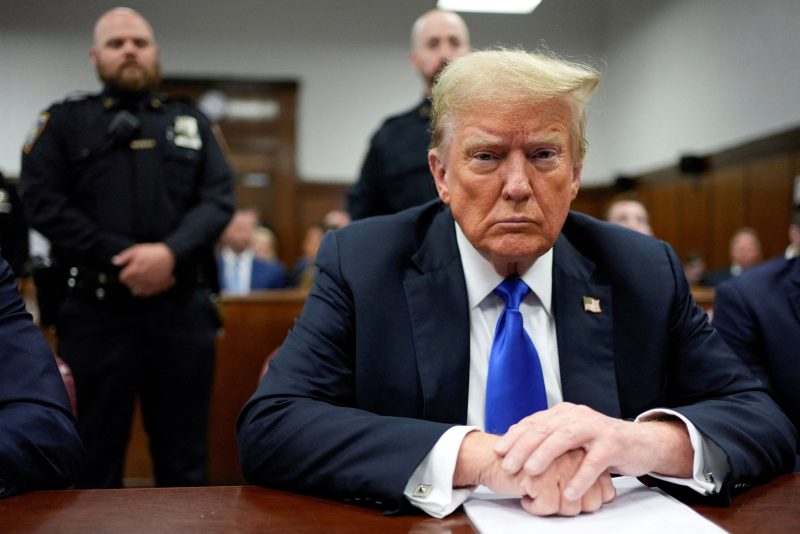In recent political developments, the rhetoric surrounding the impeachment trial of former President Donald Trump has taken a contentious turn. Trump and his allies have been stepping up suggestions that the trial is rigged against him, citing what they claim is bad evidence to support their claims. This shift in narrative has added fuel to the already intense debate surrounding Trump’s impeachment trial.
One of the central arguments put forth by Trump and his allies is that the evidence presented during the trial is flawed and lacks credibility. They point to inconsistencies in witness testimonies, alleged biases among the prosecution team, and procedural irregularities as evidence that the trial is not being conducted fairly. This narrative has gained traction among Trump supporters and ardent defenders, who see it as a way to undermine the legitimacy of the trial itself.
Despite these claims, legal experts and political analysts have pushed back against the idea that the trial is rigged or based on bad evidence. They argue that the evidence and witnesses presented by the prosecution are credible and sufficient to make a case for Trump’s impeachment. Moreover, they emphasize that the trial is following established legal procedures and guidelines, ensuring due process for all parties involved.
Furthermore, critics of Trump’s defense strategy argue that his team’s focus on attacking the trial’s credibility instead of addressing the substance of the charges against the former president is a deliberate attempt to obfuscate the issues at hand. By casting doubt on the trial’s fairness, Trump and his allies are seeking to deflect attention from the core allegations of incitement of insurrection and abuse of power that form the basis of the impeachment charges.
The renewed emphasis on claims of a rigged trial with bad evidence reflects the deeply polarized political landscape in the United States. Trump’s steadfast supporters view the trial as a partisan attack on their former leader, while those critical of Trump see it as a necessary reckoning for his alleged transgressions while in office. The clash of these competing narratives has only served to deepen existing divisions and sow further discord within American society.
As the impeachment trial proceeds and the arguments from both sides intensify, it is essential for the public to critically assess the evidence presented and the validity of the claims being made. The stakes of this trial are high, with implications for the future accountability of public officials and the integrity of the democratic process. In this charged environment, it is crucial to separate facts from rhetoric and uphold the principles of transparency, fairness, and justice in the pursuit of truth and accountability.

